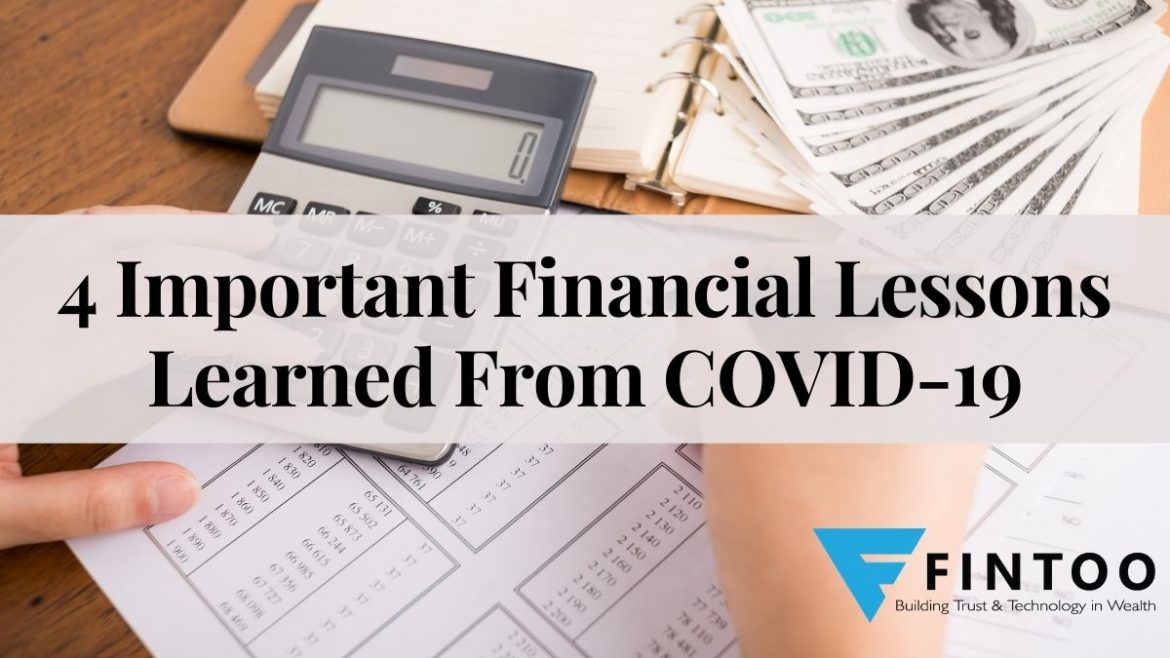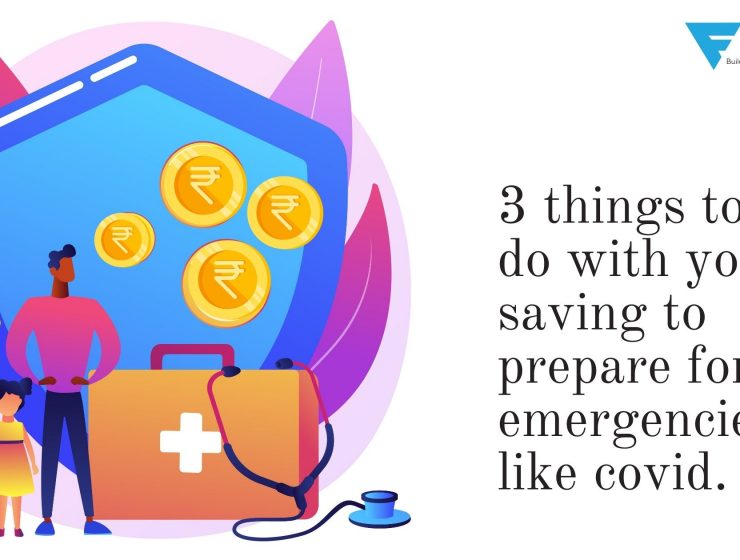

The coronavirus has spread like a fire globally. This pandemic has taught us not one but many lessons. As it is always said, any experience teaches you some lessons. It is up to us whether we understand it or just ignore it. In this blog, we will focus on the financial lessons we learned regarding our personal finances from this deadly virus – COVID19.
The pandemic has also dealt a huge blow to the world economy and looking at how things are moving currently, the chances of all this going away anytime soon are only getting bleaker.
While nobody really knows how long this will last or how much we will be affected, there are a few financial lessons that we have already learned so far. Let us discuss these in detail:
1. Do not depend on single source of income
Having your entire family depend on your single source of salary/business income has proved to be a big mistake. I have come across so many people who have lost their jobs having 4-5 dependents.
It is highly suggested that you should have multiple sources of income. But the question you may have now is “How?”.
Well, try to make your hobby lucrative. For example, you play guitar, you can teach students on weekends. Alternatively, if you are an experienced professional, you can start providing online coaching to people in your industry who need to upgrade themselves. You can teach them how to do business or any area in which you have expertise.
Another way is to have passive income by way of dividends, interest and rentals. For this, you need to plan in advance so that you have multiple sources of income. So even though one of the income sources ends or becomes less you have others to fall back on to move on for some months.
So the lesson learnt is to generate income from multiple sources.
Read here: Financial Planning amid COVID-19
2. Do not go overboard with loans
Many households have experienced a grave cash crunch in this COVID situation. This is major because most of their incomes were going towards paying EMIs. As long as you are getting your monthly income, it is manageable to pay off your loans. But looking at the current situation where we are experiencing job loss or significant pay cuts, it is difficult to continue with all the loans.
Although taking a loan enables you to experience a lavish lifestyle like owning a big house, a sedan car, top model mobile phone, luxury shopping of clothes using credit cards etc, it is crucial that you understand we should only be spending what we have and should not expand our lifestyle beyond what we can afford at that moment.
Loans can really help you out in need and it should be taken only when there is no other option left. Ideally one should not have EMIs exceeding 30% of your income.
Ones who have lost their job or witnessed massive pay cuts have no other option but to either sell the asset or make use of the moratorium period provided by RBI. But opting for a moratorium will only add to your liabilities as your interest will increase. Instead of saving money, you will end up paying more.
So the lesson learnt is don’t go overboard with loans ever. Limit it to 30% of your in-hand income even though you are eligible for 50% or more.
3. Always have an emergency fund ready
We understand the importance of having an emergency fund in time like this. Are you thinking that if you would have saved for emergencies, instead of spending on less important things then you would have been a lot better off dealing with the current COVID-19 pandemic?
If yes, this is the lesson learnt for you.
It is never too late. The first investment should always be to create an emergency fund. Once you are done saving and investing for your emergency fund, then you can look at investing for your other goals whether short term or long term.
Having an emergency fund is a great way to meet all your liquid needs. So start building it before it is too late. Now you might be wondering. “how much should we target to have in an emergency fund?
I will give you a thumb rule here. Ideally, one should have an emergency fund equal to 6-12 months of your expenses. It varies depending upon no. of dependants, no. of sources of income, nature of work etc.
So the financial lesson learned is to have an adequate emergency fund at all times. You will never know when it can prove to be useful. Usually, it is when you least expect it.
Also read: Importance of Insurance amid COVID-19 – Fintoo Blog
4. Should not depend solely on employer’s health Insurance
Let me tell you one incidence here. Mr. Sahil, age 29 had a health insurance cover provided by his employer. This cover not only covered him but also his parents. So in case, any need arises, he could utilise this benefit provided by the employer. Even after suggesting multiple times that he should take a separate cover for himself and his parents, he just kept on postponing the same thinking that he already has a cover so why to spend more.
Now during this lockdown owing to novel COVID-19, he lost his job. To make the situation even worse, his mother tested COVID-19 positive. Sahil who once thought that he is adequately insured was looking out for other means of funding the medical expenses as now he has no job and no health insurance cover too.
It made him realise the importance of having a separate health insurance cover. But he learnt this lesson the hard way. I feel that many of you could relate to this story of Sahil.
So the lesson learnt is don’t make the same mistake and get yourself adequately insured.
Conclusion
These were some of the financial lessons that we learnt from the current COVID-19 pandemic. It is highly recommended that you learn these financial lessons and take action so that the same thing doesn’t get repeated any time in the future. It is rightly said that “Tough times don’t last, but tough people do.” In times such as these, let us try our best to keep ourselves optimistic and positive. This too shall pass.
To Invest and keep regular track of your portfolio download: Fintoo App Android http://bit.ly/2TPeIgX / Fintoo App iOS http://apple.co/2Nt75LP
Related Posts
Stay up-to-date with the latest information.


